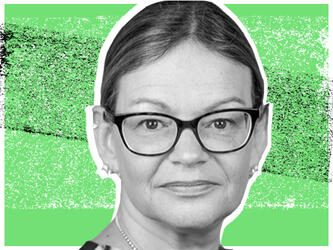The real secret life of four year olds – or just good TV?
The Channel 4 documentary The Secret Life of 4 Year Olds does tell us something about what a four year old does with their day. Cameras in the playground capture the complex, bewildering, fun and cruel interactions that go on between children. Personalities are already crystal clear, with children like Chaim and Skyla keen to assert their dominance.
But is this really the ‘secret’ life of four year olds? Or is it instead a highly manufactured insight into a carefully selected and positioned bunch of four year olds who play in an artificial nursery, looked after by two adults they barely know? Frequent glances to the cameras by both the children and adults show that they are well aware of these cameras.
The qualitative researchers among us will be only too aware of The Hawthorne effect – the term coined after a study in the 1920s found that workers’ productivity increased when they were being watched by the researchers.
We know that people act differently when observed. As a result we’ve developed techniques that help us to mitigate its effect and to gain genuine insights into people’s behaviour. Filming is a rich research tool. A camera is far less conspicuous than a person. It provokes fewer questions. And as with any inanimate object, it soon blends into the background. While children might be curious initially, the blandness of a camera will mean that its fascination is temporary. Meaning that children will start to act as if unobserved, and we get a truer insight into their lives.
Hopefully, this will happen over time at the secret life nursery, although the effect of the personal microphones may mean that a complete escape from the Hawthorne effect is just not possible.
If it isn’t possible to escape the Hawthorne effect, does it matter? Not from a TV viewing perspective, no. The programme is still great entertainment. It also indicates just how powerful film can be in researching kids. The thing about four year olds is that you can’t ask them what it is like to be a four year old, they will stare in bafflement. How are they supposed to know? For, of course, they know no different. It is just life to them. If they do offer a view on what it is to be like them, it will be heavily influenced by what they think you want to hear, what will make them more popular, what will get them a bigger treat.
Anyone watching the secret life of playgrounds also can’t fail to be struck by the richness of the children’s play, which, regardless of how aware they are of the camera from time to time, won’t be wholly for the benefit of the camera. It covers continents, eras, gender and reality boundaries.
Four year olds are still firmly embedded in the ‘pretend play’ stage. Their imaginations are firing full blast. They are learning about themselves, about others and about the world around them through this play. They will learn how to negotiate (who’s going to be mummy), compromise, turn-take (who’s go on the body board) and resolve conflicts.
While there is some mixed gender play, most of the time is spent with their own gender, and games are typically gender stereotyped. Four year olds girls are still proudly pink and princess. Four year old boys are solidly dragons and astronauts. The programme is evidence of the fact that four year olds continue to learn a lot through imitation. You hear one telling Richard on the phone to stop calling her, that she hates him, followed by an immediate “I love you”, and then a slam down of the phone.
Let us not underestimate how much four year olds take in about the world of adults. But let us also not forget that this is good TV and not research
By Emma Worrollo and Dr. Angharad Rudkin, The Pineapple Lounge

We hope you enjoyed this article.
Research Live is published by MRS.
The Market Research Society (MRS) exists to promote and protect the research sector, showcasing how research delivers impact for businesses and government.
Members of MRS enjoy many benefits including tailoured policy guidance, discounts on training and conferences, and access to member-only content.
For example, there's an archive of winning case studies from over a decade of MRS Awards.
Find out more about the benefits of joining MRS here.












0 Comments